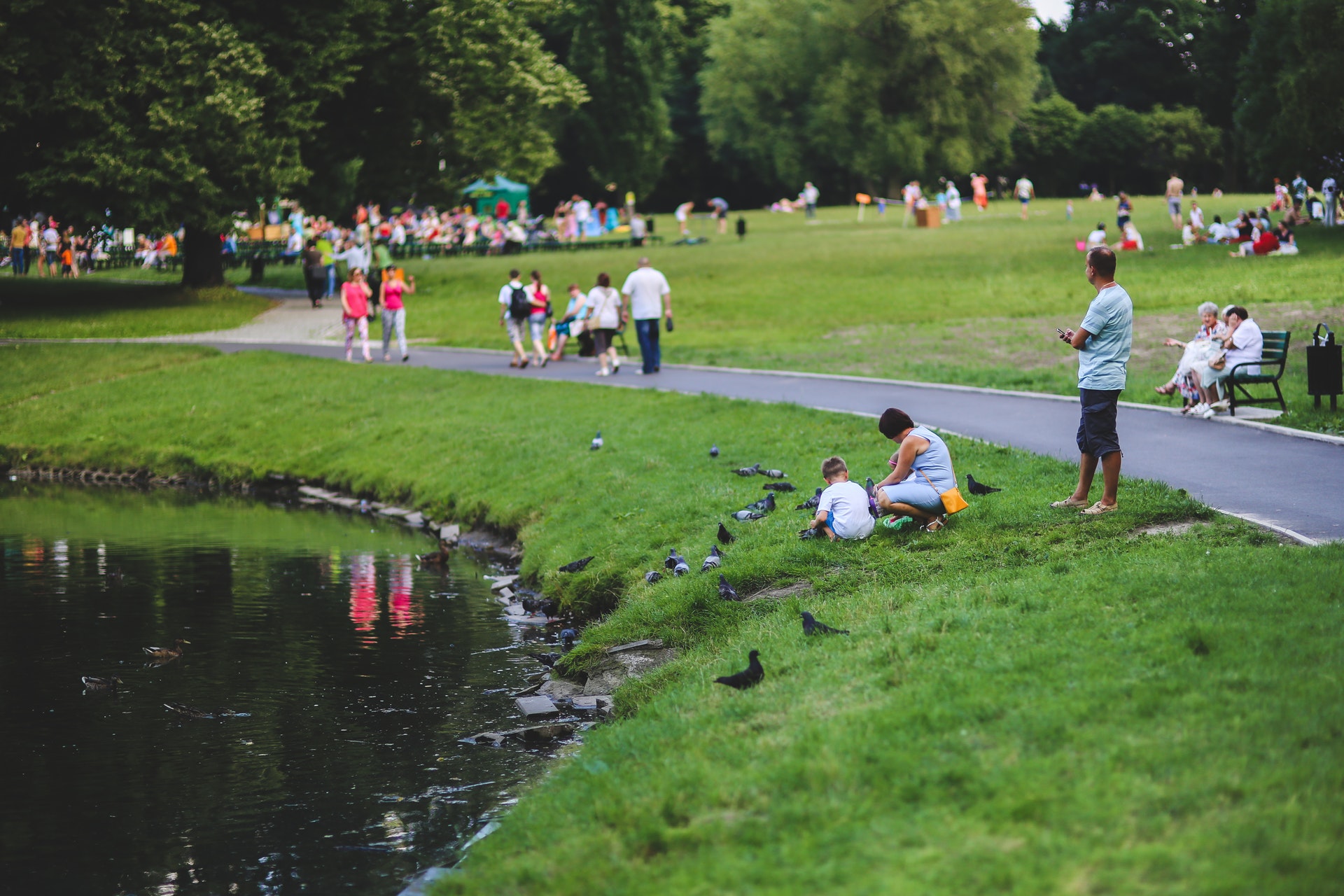New research suggests that living within 300m of urban green space is associated with a greater sense of worth, life satisfaction and happiness. Research conducted by Newcastle University, the University of Warwick and the University of Sheffield, uses new geospatial research techniques to create an accurate measure of the relationship between three difference aspects of mental wellbeing and green space.

The research combines data on the shape, size and location of London’s 20,000 public green spaces with survey responses from 25,518 participants in the UK Government’s annual population survey (APS). Published in Applied Geography’s August issue, the research found that green space within 300m of home had the greatest influence on mental wellbeing. The researchers further explained that they modelled green space distribution in relation to where the survey participants lived, considering how that influenced their mental wellbeing.
The researchers also found that:
- There is a “very strong” relationship between the feelings of life satisfaction, happiness and self-worth and the amount of green space around a person’s home.
- An increase of one hectare within 300m of residents was associated with an increase of 5 percentage points in happiness, 7 in worth and 8 in life satisfaction.
- Green space was less important for mental wellbeing in east London and central London.

“We believe this it is the first study to demonstrate how urban green space may improve a broader definition of mental wellbeing. A lot of research focuses on poor mental health, or single aspects of wellbeing like life satisfaction. What makes our work different is the way we consider multi-dimensional mental wellbeing, in terms of happiness, life satisfaction and worth. While government guidelines recommend minimum amounts of green space in residential developments, our study was able to establish more specifically where green space may be most valuable.”
– Dr Victoria Houlden, Newcastle University
As well as the increase in happiness and life satisfaction, increasing the amount of green spaces in urbanised areas can greatly improve the natural biodiversity. Biodiversity boosts ecosystem productivity where each species, no matter how small, all have important parts to play. By introducing more green spaces, we have the opportunity for wild flowers and fauna to bring native species into the ecosystem.

At Ethical Partnership, our business is focused around our values. In everything that we do, we seek to protect and conserve the natural environment and finite resources of the planet and reflect this in the way we advise our clients, design schemes and select our partners.
We offer a comprehensive range of ecology and landscape services to both public and private sector clients to enable them to design developments and other schemes that are sensitive to the needs of wildlife, landscape and habitats. We help our clients protect and conserve local and global environmental resources, have been successful in securing standard and bespoke environmental permits and have an excellent working relationship with the Environment Agency and the Scottish Environmental Protection Agency.
With such as vast range of experience, no planning consultancy is better suited to tackle environmental issues as we are. Contact us today for so we can work out how to best help you achieve your planning goals, protect the environment for future generations, and ensure that more people have access to life-changing green spaces.
